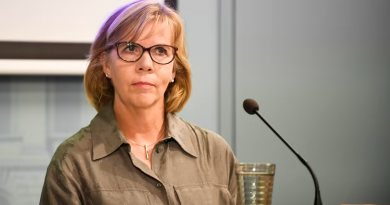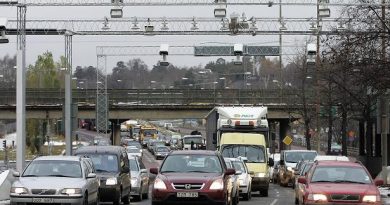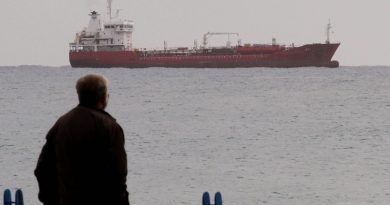Int’l Inuit org concerned about future of Arctic Council

The organization that represents the world’s Inuit population says it’s behind the decision of the seven Arctic states to pause the forum’s work but is concerned about the future of the Arctic Council.
The Inuit Circumpolar Council (ICC) represents the approximately 180,000 Inuit in Alaska, Canada, Greenland, and Chukotka, Russia. It is also one of the six Indigenous organizations, known as Permanent Participants, on the Arctic Council.
No one from ICC’s four regional offices responded to an interview request, but in a statement released on Monday, they said they’ll closely follow developments in the coming weeks.
“We are concerned about the future of the Arctic Council which is based on peaceful cooperation and mutual respect,” ICC said.
“ICC is monitoring the situation closely and agrees with the SAOs that this temporary pause will allow time to consider “the necessary modalities that can allow us to continue the Council’s important work in view of the current circumstances.”
ICC’s comments echo those of the other permanent participant groups last week.
“The severity of the war needs to be acknowledged at the Arctic Council,” Bill Erasmus, the Canadian Chair of the Arctic Athabaskan Council, said in a phone interview.
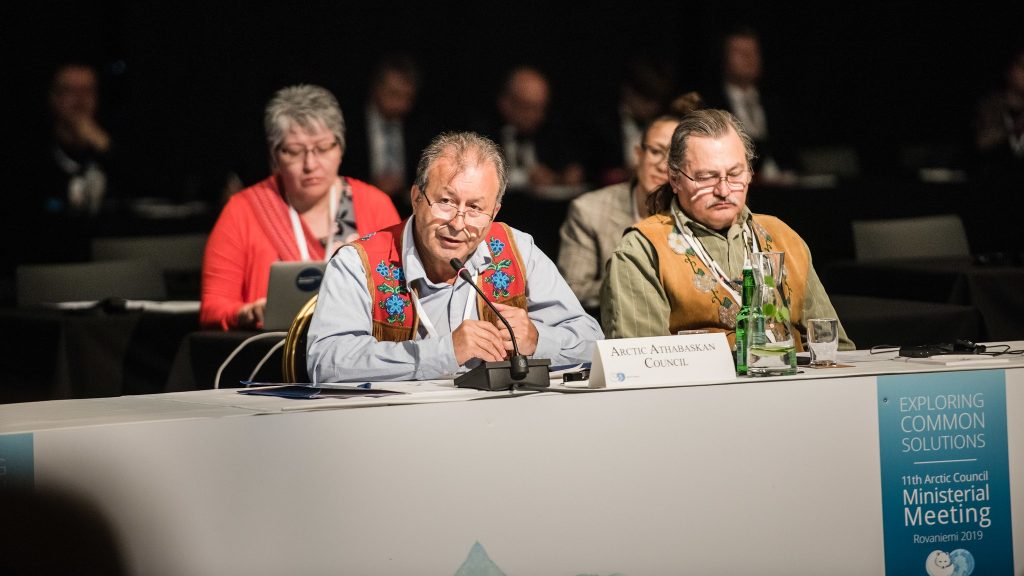
Gwich’in Council International said stopping the council’s work was the right call.
“Gwich’in Council International welcomes the collective pause of activities of the Arctic Council as we explore new modalities for pursuing peace and cooperation in the north,” the organization said in a statement.
Russian invasion “flagrant violation” of Arctic Council principals, say northern states
The Arctic Council is an international forum made up of the eight Arctic states: Canada, Denmark/Greenland, Finland, Iceland, Norway, Sweden, Russia and the United States; and the six Arctic Indigenous groups: the Aleut International Association, the Arctic Athabaskan Council, the Gwich’in Council International, the Inuit Circumpolar Council, the Russian Association of Indigenous Peoples of the North and the Saami Council.
The Arctic Council runs on consensus and was founded in Canada in 1996 for the northern states to work together on environmental protection and sustainable development.
Military and security issues have been explicitly excluded from the forum since its founding to allow the circumpolar community to focus on the common challenges of climate change and sustainable development in the North.
The council’s projects are done through their working groups made of up of Indigenous peoples and other experts in everything from emergency preparedness to biodiversity.
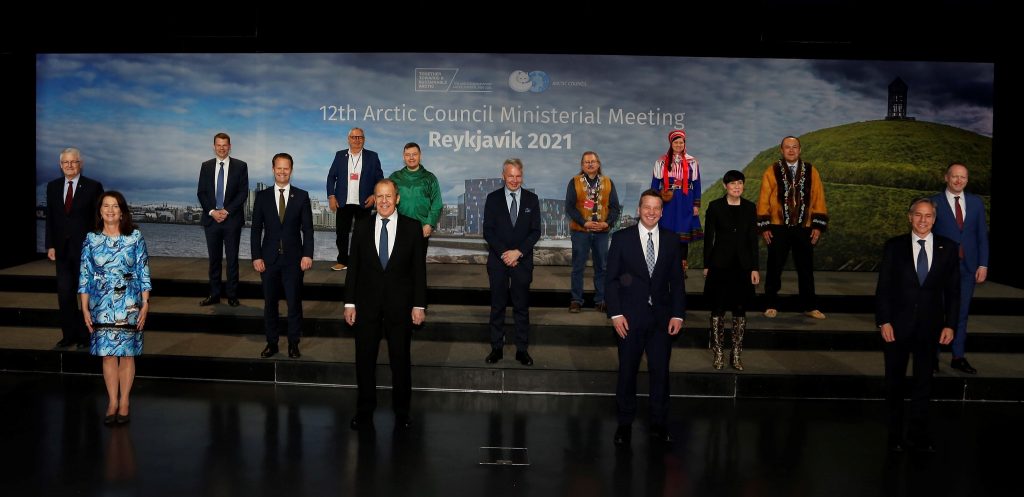
Russia took over the forum’s two-year rotating chairmanship from Iceland last year.
On Thursday, Canada, Denmark/Greenland, Finland, Iceland, Norway, Sweden and the United States announced they were pausing participation in the Arctic Council’s work amidst Russia’s invasion of Ukraine.
“The core principles of sovereignty and territorial integrity, based on international law, have long underpinned the work of the Arctic Council, a forum which Russia currently chairs,” they said in a statement.
“In light of Russia’s flagrant violation of these principles, our representatives will not travel to Russia for meetings of the Arctic Council. Additionally, our states are temporarily pausing participation in all meetings of the Council and its subsidiary bodies, pending consideration of the necessary modalities that can allow us to continue the Council’s important work in view of the current circumstances.”
Arctic must stay zone of peace

ICC says it will continue its cross-border work with its members and reiterated its call for the Arctic to remain an area of low tension.
“Inuit are committed to the Arctic remaining a zone of peace, a phrase coined by former USSR President Mikhail Gorbachev in a 1987 speech in Murmansk,” ICC said.
“ICC has repeatedly echoed this message in all of its guiding documents, most recently in the Utqiaġvik Declaration of 2018 in which it was mandated to lay the groundwork to declare the Arctic as a peaceful Zone.”
Write to Eilís Quinn at eilis.quinn(at)cbc.ca
Related stories from around the North:
Canada: Arctic Economic Council switching to online meeting amidst Russian invasion of Ukraine, Eye on the Arctic
Finland: Finland and Sweden to “strengthen interaction with NATO”, Radio Sweden
Norway: Nordic countries halt all regional cooperation with Russia, The Independent Barents Observer
Russia: Russia’s Arctic LNG project might come to halt, The Independent Barents Observer
Sweden: Swedish customs hand inspecting goods destined for Russia amidst sanctions, Radio Sweden

